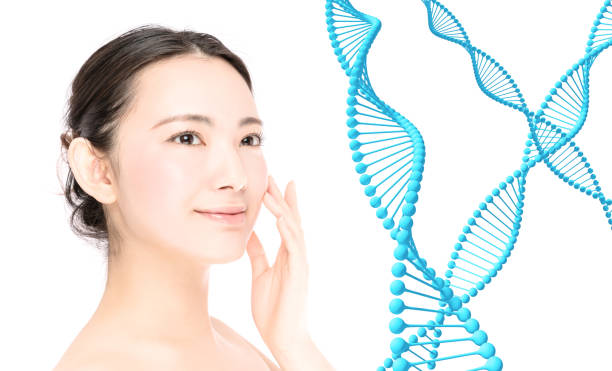Acne is a skin condition characterized by the formation of pimples, blackheads, whiteheads, and sometimes cysts on the skin. It can be both emotionally and physically distressing, thereby affecting an individual\’s self-esteem and overall quality of life. Genetics plays a significant role in the development of acne, although it is not the only determining factor.
Here\’s how genetics contributes to acne:
- Family History:
One of the signs that let you know that genetics is at play in acne is a family history of the condition. If your parents or siblings have dealt with acne, there\’s a higher likelihood that you might as well. This suggests a genetic predisposition to acne.
- Hereditary Factors:
Various genetic factors can impact how your skin produces and responds to sebum, the natural oil that lubricates your skin. Genetic variations related to sebum production, inflammation, and the shedding of skin cells can make some individuals more prone to acne.
- Hormonal Influence:
Hormones, particularly androgens like testosterone, play a significant role in acne development. Genetic factors can influence hormone levels and their effects on the skin. Those genetically predisposed to higher androgen levels may be more susceptible to acne.
- Inflammatory Response:
Acne is fundamentally an inflammatory condition, and your genetics can influence your body\’s immune response and inflammation levels. Variations in genes associated with the immune system can affect how your body reacts to acne-causing bacteria and inflammation in the skin.
- Skin Type:
Genetics also determine your skin type, which can impact your proneness to acne. Some individuals naturally have oily skin, making them more prone to clogged pores and acne, while others have dry or combination skin, which may be less susceptible.
How to Manage Genetic Predisposition to Acne
While you may have a genetic predisposition to acne, it doesn\’t mean that you can\’t manage the skin condition. Here are some steps you can take:
- Consult a Dermatologist:
If you\’re concerned about acne, especially if it\’s severe or persistent, consult a dermatologist. You can complete our contact form to be connected with a certified specialist and get personalized treatment options based on your specific needs.
- Skincare Routine:
Establish a suitable skincare routine that includes gentle cleansing, exfoliation, and the use of non-comedogenic products. Your dermatologist can recommend products tailored to your skin type.
- Lifestyle Factors:
Maintain a healthy lifestyle by staying hydrated, eating a balanced diet, and managing stress levels. These factors can help mitigate acne\’s impact.
- Prescription Treatments:
In some cases, prescription treatments like topical retinoids, antibiotics, or hormonal therapies may be necessary to manage acne effectively.
Genetics undoubtedly plays a substantial role in the development of acne, but it is just one piece of the puzzle. A combination of genetic factors, hormones, lifestyle choices, and skincare practices contributes to the condition.
Conclusion
Incorporating these insights into your skincare regimen can make a positive difference in your acne management journey. Remember, while genetics may influence your predisposition to acne, it doesn\’t dictate your destiny, and effective treatments are available to help you achieve clearer, blemish-free skin.

